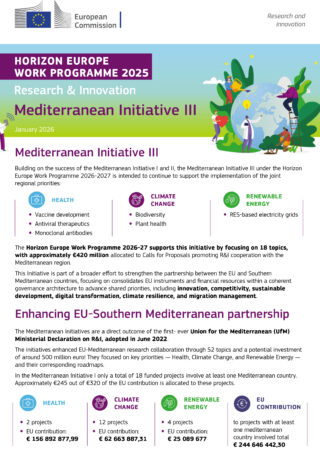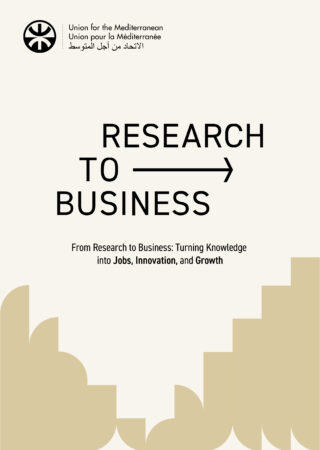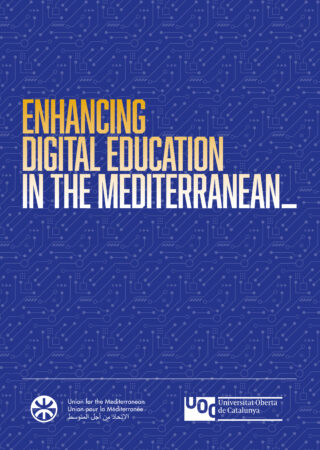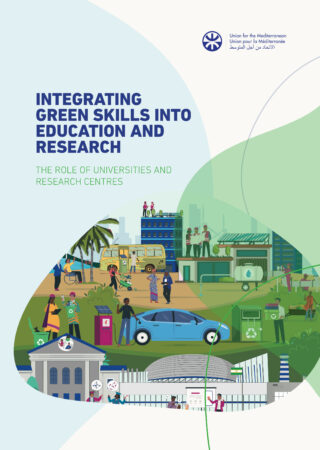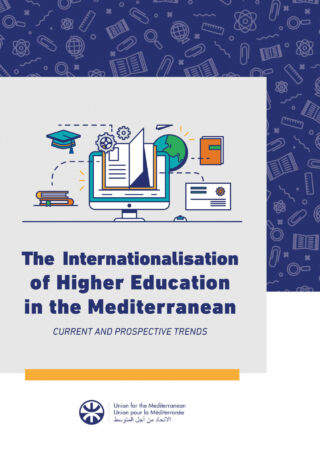
The Internationalisation of Higher Education in the Mediterranean – Current and Prospective Trends
The internationalisation of higher education is aimed at enhancing the quality and standards of teaching and research. This study addresses mobility and cross-border education trends in the Euro-Mediterranean region, with special emphasis on academic exchange, involving students, scholars and administrative staff, as well as on the strategic international partnerships across the globe. The study focuses on 10 countries: Algeria, Egypt, Israel, Jordan, Lebanon, Libya, Mauritania, Morocco, Palestine and Tunisia. It aims to investigate the internationalisation of higher education focusing especially on resources and opportunities available at the national and regional levels, to identify obstacles and challenges and to outline transferable inspiring practices and finally to make a series of recommendations for the Union for the Mediterranean to foster regional integration. As for the methodology, a survey investigating teaching and administrative staff as well as student mobility was submitted to a sample of universities representing the 10 target countries; further interviews with international and regional stakeholders were conducted, focus groups were established, involving the universities covered by the study and a thorough desk research was undertaken.
As a result, the report presents a detailed context analysis with a focus on mobility flows to and from the 10 target countries, complemented by a wide range of inspiring and scalable practices, as well as an overview of the role played by regional organisations in providing opportunities, creating synergies and making resources available for the higher education institutions in the Mediterranean. Country-specific recommendations were designed in order to address national challenges. At the end of the research and consultative process, a number of common themes for the Euro-Mediterranean region were also identified, in relation to which additional recommendations were drafted, with the aim of enhancing the internationalisation of higher education in the region.
We are still far from the finish line and this report has the ambitious goal to represent a building block for those willing to further explore the issue. Here follow the main findings, which are common to more than one country: Erasmus+ emerged as the programme generating the largest impact on the internationalisation strategies of higher education institutions; the need for university leadership to consider the administrative staff as a key element to support internationalisation; the high fragmentation in the procedures and systems of credit recognition and assessment of qualifications; difficulties were encountered in collecting reliable and comparable data. Obtaining visas for international mobility, especially for MENA countries to access Europe, has always been a serious obstacle to exchanges and international cooperation should focus more on human and social sciences, often neglected compared to hard sciences. Above all, the study highlights how, in most cases, internationalisation is simply identified as mobility, while a more comprehensive internationalisation strategy would be highly beneficial for institutions and staff and may increase attractiveness and participation.
Authors: (in alphabetical order): Maria Giulia Ballatore, Raniero Chelli, Federica De Giorgi, Marco Di Donato, Federica Li Muli, Silvia Marchionne, Anne-Laurence Pastorini, Eugenio Platania, Martina Zipoli
June 2021
